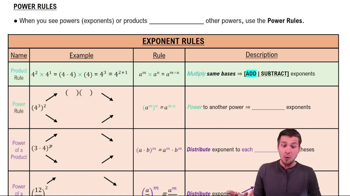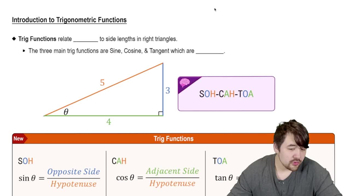82–89. Comparing growth rates Determine which of the two functions grows faster, or state that they have comparable growth rates.
eˣ and 3ˣ
 Verified step by step guidance
Verified step by step guidance Verified video answer for a similar problem:
Verified video answer for a similar problem:



 5:53m
5:53mMaster Finding Differentials with a bite sized video explanation from Patrick
Start learning